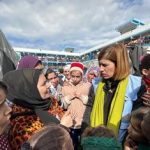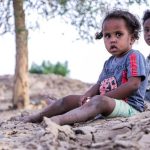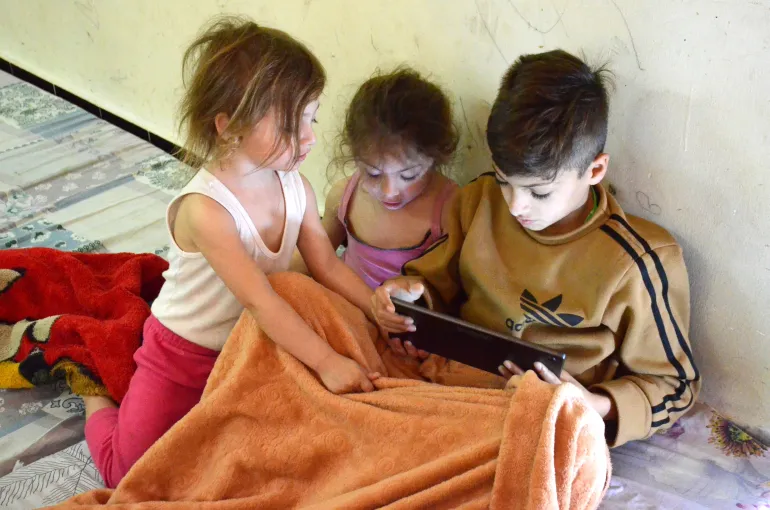The regions of southern Lebanon are witnessing a remarkable escalation in military operations day after day, which has imposed a new educational reality on its students. The educational sector in Lebanon, which is actually suffering from a crisis, finds itself today facing a more complex crisis in light of the “Israeli” aggression.
Over the course of 6 months since the start of the escalation in the border areas in connection with Operation Al-Aqsa Flood and the subsequent “Israeli” aggression against Gaza, the possibility of life has disappeared in the front villages, and with the massive displacement movement, the educational process has been disrupted in both public and private schools, even in relatively remote areas at a distance. It is estimated at about 8 kilometers, as a result of direct confrontations with “Israel”.
The aggression caused the students of the South to be divided into several categories. Some of them were forced to leave the village and move to schools in areas of displacement, where they receive distance education, and some of them were displaced and were unable to join any school. A few students whose families preferred to stay, so they remained without education after the schools closed.
Useless procedures
Faced with this reality, Mustafa Al-Sayyid Abu Hassan, displaced from the town of Beit Lev, found himself with his family, consisting of two wives and 11 children, in a shelter center in the city of Tyre, amidst uncertainty surrounding the educational fate of his children.
Speaking to the media, Abu Hassan said sadly, “4 of my children do not know the fate of their education. Since the beginning of the school year, they have not attended any educational class due to the aggression after the school closed its doors and we came here.”
He added, “My eldest daughter is diabetic, and when we were displaced, she stopped studying completely, and the second one studies one hour a day remotely, while my son Hassan is supposed to be in the fourth grade, but he is still in the second, and my youngest daughter, Eileen, is still in the first grade, even though she is… “You should be in the second.”
He continued, “They now have distance education, as the Ministry of Education distributed one tablet to the three to learn, in addition to a monthly Internet card, but Internet coverage is very weak.”
He pointed out that the experience of distance education in Lebanon is of no use, and the fate of his children has become unknown, and he added, “In addition to their unknown educational fate, their psychological state has been greatly affected, and sometimes they suffer from a state of panic and fear at night, especially in the winter when they hear the sound of thunder and think that it is… bombing, and their behavior changed significantly.”
Special treatment
In this context, the President of the Association of Basic Education Teachers in Lebanon, Mr. Hussein Jawad, explained that there are schools in the south that are still practicing in-person education, while there are other schools that have been closed, specifically the schools located in the border strip at a depth of approximately 8 kilometers, known as the area located in Scope of rules of engagement.
Jawad said that regarding areas such as Tire and Nabatieh, all schools located beyond this line to the north are open in person, and education is provided daily normally, and even when some attacks sometimes occur or there is a violation of a sound barrier and the like, education continues without interruption. He explained that there may be fear sometimes, but education continues normally.
Jawad added, “As for the students of the south in the areas adjacent to the border, they did not receive classes in person in the first days due to the military operation that began after the 7th of October, and schools were scheduled to start on the 9th of October. As soon as the operation began, these schools were closed.” Immediately, and then the circle of attacks and closures gradually expanded from the south to the north.
Regarding the official certificates for students in the south, Jawad confirmed, “Exams will be conducted with reduced curricula for them in the secondary and intermediate levels. Their questions will be different from the regular exam questions.”
The same spokesman added that this issue is subject, first, to the Council of Ministers’ approval of the minister’s proposal to cancel the ninth basic exams or the intermediate certificate and replace them with a unified exam. The questions for this exam will be submitted by the Educational Center for Research and Development, and the questions will be unified for all intermediate certificate students who will take their exams in their classes. And in their schools.
Jawad pointed out that “the fears that students suffer from during the examination period are normal, and must be taken into account. The Ministry should provide all facilities and support to students from the affected areas and border areas in the south, and take into account their educational, academic and psychological situation, and fear and anxiety must be addressed carefully.””.
Psychological stress
In light of the ongoing “Israeli” aggression, residents of the affected areas are suffering from increasing and double pressures. They are concerned about the future of their children’s school year, and at the same time, they find themselves trapped in a spiral of psychological pressure as a result of the harsh events that their children experienced.
Family and educational consultant Maryam Al-Shami points out that the current period that children are experiencing is leaving comprehensive negative effects on their lives, whether psychologically, physically or mentally.
She confirms that the increase in the period of war, fear, and panic increases their psychological disorders, affecting their emotional and behavioral development, and physical effects may also appear, such as pain in the abdomen, rapid heartbeat, and headaches, which accumulate in the child and appear later, with long-term effects.
Al-Shami stresses the importance of spreading the culture of speaking and expressing the feelings caused by events, especially in the school environment, noting the necessity of preparing children for what may happen, especially with regard to the sounds of raids and aircraft, and reassuring them that they will not be harmed, while being careful to maintain the child’s daily routine and practice His hobbies are a way to release his feelings and stay away from news sources.






